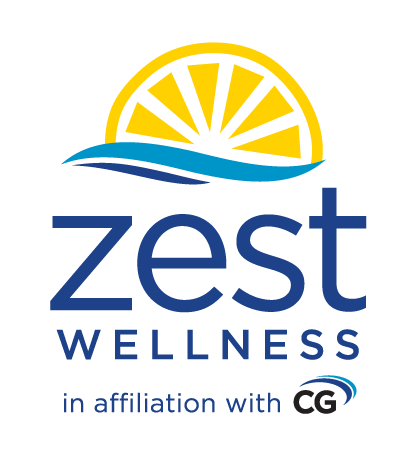Got Plants?
I eat plants. A whole lot of plants. But isn't it boring? How do you get enough protein? Are you sure you're getting all the nutrients you need? What about calcium? Doesn't milk do a body good? Do beans make you gassy? Aren't you hungry from eating nothing but salad all day? These are all questions I received on my journey of eliminating animal products little by little from my diet. Fair enough - I've also asked myself the same.
I didn't plan to become vegan. It just kind of happened. I'm probably 90% there. I'm not a purist by any means, I end up eating cheese on a pizza now and then and do not question what's in a croissant. I went through a phase of reading everything and anything on nutrition all while Netflix simultaneously and serendipitously dropped several food documentaries. I devoured (pun intended) it all. What I found was that plant-based eating could not only be beneficial to your health but if you care about animals and the planet - you may want to consider swapping meat for plants.
Busting Health Myths
Coming from an education in science, I appreciated the compilation of research studies found in HOW NOT TO DIE by Michael Greger, MD. Not only is this all caps title pretty catchy but he's also a legitimate doctor. He argues that most diseases, and subsequently, premature death, is prevented by eating a whole-food, plant-based diet. He cites peer-reviewed scientific evidence throughout the book, which demonstrates that not only can you prevent disease, you can reverse disease by merely making necessary dietary changes. This book is a good starting point to investigate the benefits of plant-based eating and gives some practical and actionable items. However, the evidence looks a bit cherry-picked to support veganism entirely, so I suggest you also take it with a grain of salt and do your research. See a list I put together for you below. I did find this book very helpful in busting the myths of protein and our unnecessary reliance on meat and dairy for health benefits.
Contrary to popular belief, reducing meat consumption does not have to impact your protein intake if done correctly. According to Michael Greger, the American diet is not in lack of protein; rather, we should be more worried about our fibre intake. The estimated average protein requirement is only 42 grams a day, but the recommended daily allowance (to account for variation among individuals) comes out to be about 51 grams. Most Americans (including vegans) are getting about 70 per cent more protein than they need every day. Plant sources of protein are preferable, as they do not come with the baggage of cholesterol, saturated fats, and hormones. With plants, however, you get the added goodness of minerals, vitamins, immune-boosting and cancer-protecting fibre. It's estimated that 97% of Americans don't even reach the recommended minimum daily fibre intake. By adding whole plants, we get all the nutrients we need and more.
The dairy industry has massively campaigned to convince us of its benefits. 'Does a Body Good' and 'Got Milk' are iconic with memories of celebrities in milk moustaches, including even Bart and Lisa Simpson at one point. However, is it essential for us to drink another mammal’s milk? Recent studies are starting to show the harmful effects of milk, including prostate cancer in men and bone fractures in women. However, milk does contain many essential nutrients, so before cutting it out, it is crucial to weigh the pros and cons and ensure that you get those nutrients from other sources. With so many alternatives (almond, coconut, oat and the list goes on), it's getting easier to make the switch. Unless you just love the taste of milk in which case I would try cooking with alternatives first and slowly try to see which nut milk will make the cut for your morning latte. Beware: calcium is not present in milk alternatives listed above so ensure you get it. Good sources of calcium for vegans can be found in everything from green, leafy vegetables – such as broccoli, cabbage, to legumes such as beans and lentils, fruit, nuts and seeds.
Back to meat. Another misconception is that vegetarians or vegans do not get enough iron. This is simply not true. Good plant sources of iron include lentils, chickpeas, beans, tofu, cashew nuts, chia seeds, hemp seeds, pumpkin seeds, kale, dried apricots and figs, raisins, quinoa and fortified breakfast cereal.
Finding Your 'Why'
Maybe it's for your health. But what's in it for the environment? For animals? Agriculture is one of the worst contributors to global warming. These changes are seen today in the melting of the ice sheets in the Arctic and Antarctica, rising temperatures of our cities, and extreme weather and the subsequent extinction of animals that cannot adapt. Scientists estimate that approximately a third of all greenhouse gas emissions are due to our consumption of animals. One cow can produce up to 200 kg of methane a year through the release of gas (aka burping and farting). Marco Springmann, a research fellow at Oxford, built computer models that estimated that if the world switched to a plant-based diet by 2050, food-related emissions would drop by about 70%.
As for the animals, there is an ethical argument to be made as there is no humane way to kill animals and the conditions associated with factory farming are inhumane. We love our dogs. We love our cats but let's think for a moment about the other beautiful creatures. Jane Goodall, in her book, The Inner World of Farm Animals writes that "farm animals feel pleasure and sadness, excitement and resentment, depression, fear and pain. They are much more sensitive and intelligent than we ever imagined." If this is your ‘why’ - I think that's incredible. The planet - unbelievable - I want it here for the next generation too.
Be Prepared
Meal prep is helpful to stay on track. Experient with lots of recipes. My go-to’s are an oatmeal bake I make in the mornings (just mix oatmeal, any fruit you have, and coconut milk) and a vegetable curry I can keep in the fridge and make different things with. I listed some inspiration to some great blogs and Instagram accounts below.
It's All about the Seasoning
Learning to cook with plants has been so much fun (okay stop the eye rolls). It's all about herbs, spices, condiments, creative dressing, nuts, seeds. Did you know you can make cheese out of nuts? Oh, and nutritional yeast - amazing - it makes anything taste like cheese and is loaded with protein. You can keep it quite simple. Cilantro, lime, lemon, gomashio (Japanese seasoning of crushed sesame), chilli peppers, olive oil, chutneys (mango is my favourite), soya sauce are my go tos.
Brush Up On Your Knowledge
There are many resources available. Just make sure they come from a reputable source.
WATCH
Game Changers: This documentary is just over a year old, and followers former UFC fighter, James Wilks, on his discovery of plant-based eating, while recovering from a severe injury. He highlights the benefits of living plant-based, references several scientific studies, and interviews several athletes. The doc can be found on Netflix and has an accompanying website for you to learn more.
Cowspiracy: The Sustainability Secret: this 2014 film, by executive producer Leonardo DiCaprio, looks at the impact of animal agriculture on the planet and dives into issues such as global warming, water use, deforestation and ocean dead zones. I'm looking forward to watching What the Health, which was produced by the same team in 2017.
Forks over Knives: This 2011 documentary promotes a whole-food, plant-based diet. It follows a physician and a professor of nutritional biochemistry in its exploration of disease prevention and treatment by whole-food, plant-based diet.
READ:
How not to Die by Michael Greger, MD: This book explores how a plant-based diet can extend your life while transforming your quality of living.
Nutritional Journals (FREE): Want to do a deep dive into nutrition? Here is a link to reference some of the best dietary journals, including, The American Journal of Clinical Nutrition and the International Journal of Behavioural Nutrition and Physical Activity. http://www.freemedicaljournals.com/f.php?f=ip_nutri
COOK:
Some great websites for plant-based inspiration:
The First Mess: Laura has a book and a culinary degree and she delivers with simple recipes full of flavour. Website: thefirstmess.com Instagram: @thefirstmess
The Green Life: Sophie is a holistic nutritionist and blogger. She inspires us to live our best life by eating more plants and living more naturally. Website: thegreenlife.ca Instagram: @the.green.life
A Couple of Cooks: Sonja and Alex make cooking vegan dishes easy with their book Pretty Simple Cooking. Their blog and podcast are a great resource for eating real food and learning to enjoy cooking. Website: acouplecooks.com. Instagram: @acouplecooks
Go Slowly and Have Fun!
It's okay to not go in 100 per cent and immediately. Just keep reading, learning, and do what you can and see what resonates with you. Maybe you have meatless Mondays to start then from there move on to a Tuesday taco challenge that has only vegetables (link to incredible mushroom tacos here). Have a dinner party where people bring only plant-based foods and exchange recipes. There are lots of creative ways to incorporate more plants while slowly divesting (or non-ingesting) meat. You may just find your plates get more colourful and delicious in the process.
Bon Appetit!






